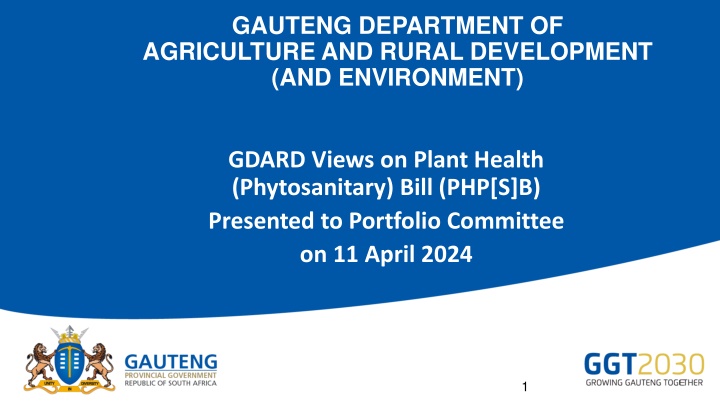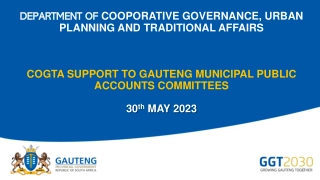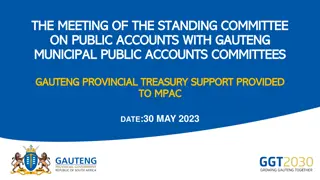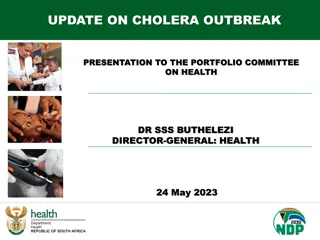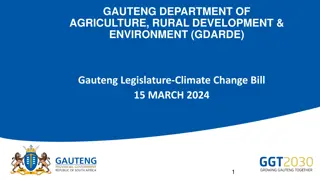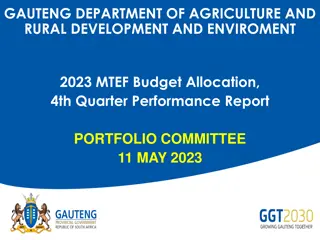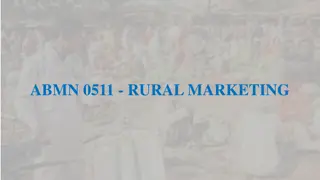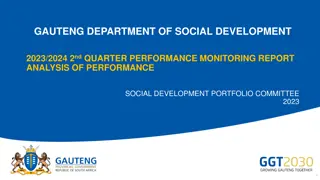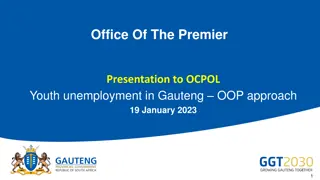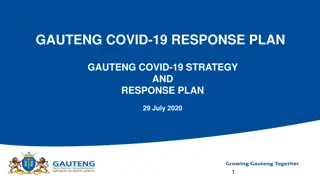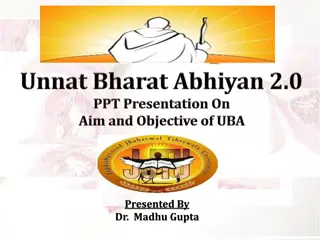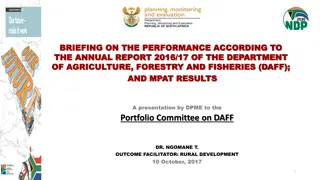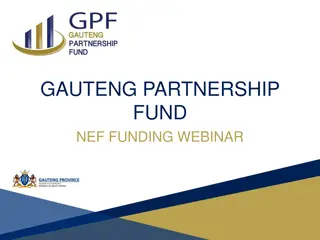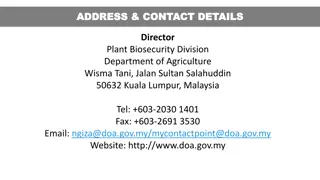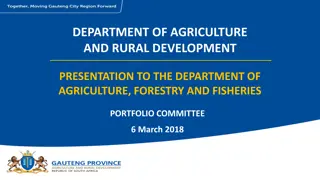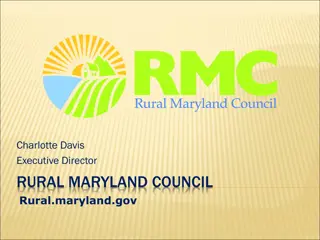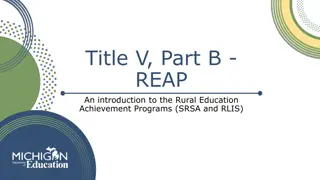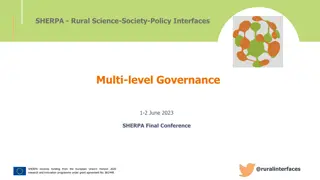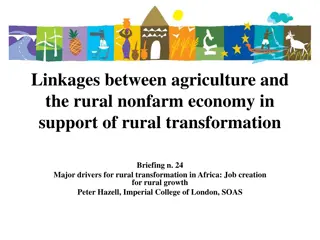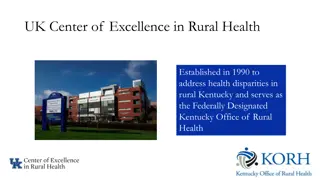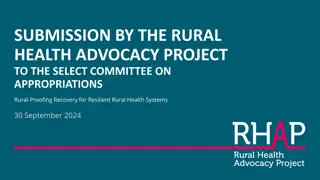Gauteng Department of Agriculture and Rural Development Views on Plant Health Bill
Introduction and overview of the Plant Health (Phytosanitary) Bill presented to the Portfolio Committee, highlighting the importance of preventing the spread of damaging pests in South Africa and the need for updated legislation to align with international standards. The bill's key clauses cover definitions, responsibilities, establishment of a national plant protection organization, import/export regulations, notification requirements, and enforcement powers.
Download Presentation

Please find below an Image/Link to download the presentation.
The content on the website is provided AS IS for your information and personal use only. It may not be sold, licensed, or shared on other websites without obtaining consent from the author.If you encounter any issues during the download, it is possible that the publisher has removed the file from their server.
You are allowed to download the files provided on this website for personal or commercial use, subject to the condition that they are used lawfully. All files are the property of their respective owners.
The content on the website is provided AS IS for your information and personal use only. It may not be sold, licensed, or shared on other websites without obtaining consent from the author.
E N D
Presentation Transcript
GAUTENG DEPARTMENT OF AGRICULTURE AND RURAL DEVELOPMENT (AND ENVIRONMENT) GDARD Views on Plant Health (Phytosanitary) Bill (PHP[S]B) Presented to Portfolio Committee on 11 April 2024 1
INTRODUCTION The introduction and spread of potentially damaging pests in South Africa could have a significantly negative impact on South African bio-security, agricultural production and food security, as well as on market access. Currently the Agricultural Pests Act 36 of 1983 is in place. Deficiencies: Predates the Constitution of the Republic of South Africa, 1996 (the Constitution); Predates the International Plant Protection Convention, 1997 (IPPC); Definitions not aligned with the IPPC standards; No provision for the National Plant Protection Organisation of SA (NPPOZA), in accordance with the IPPC (Article IV), and its functions; and No provision for export control, re-export and in-transit control (emphasis of current legislation is on import-and national control).
BILL: OVERVIEW OF MOST IMPORTANT CLAUSES (1) Clause 1 Definitions Aligns definitions to the International Plant Protection Convention, Glossary of Phytosanitary Terms, International Standards for Phytosanitary Measures (ISPMs 5). Certain terms and expressions are defined so as to clarify the contents of the Bill. Clause 2 Responsibility of the Administration of the Act Will vest in the Minister: ALRRD Clause 3 Powers of the Minister Make regulations or other control measures Other: for example, quarantine and restriction of movement Clause 8 Powers of Entry, Search, Inspection and Seizure Authorised person Warrant Any land To combat pests or carry out a control measure
BILL: OVERVIEW OF MOST IMPORTANT CLAUSES (2) Clauses 9, 10 and 11 Establishment of the National Plant Protection Organization of South Africa Provide for the establishment of the NPPOZA as required in terms of membership of the IPPC. Also deals with related matters such as composition and functions. Clause 13 Import of Regulated Articles Provides that regulated articles may only be imported on the authority of a permit and under certain conditions. Clause 14 Export of Regulated Articles Sets out the conditions for exporting regulated articles. A person exporting shall comply with the import requirements of the importing country. Clause 15 Re-export of Consignments Provides for the re-export of consignments imported into the Republic for further export to another country. Clause 16 In-Transit Consignments Sets out the requirements and/or conditions that should be adhered to by a person transiting a consignment of regulated articles through the Republic to another country.
BILL: OVERVIEW OF MOST IMPORTANT CLAUSES (3) Clause 18 Declaration of Regulated Pests By Executive Officer of NPPOZA Circumstances under which Clause 19 Compulsory Notification of Quarantine Pest Any user of land is compelled to inform the authorities of the presence of certain pests Clause 22 Assignment of Powers and/or Duties By Minister Certain powers To a juristic person or organ of state Clauses 28 and further are general provisions e.g. dealing with regulations and offences and penalties .
CURRENT SHORTFALLS AND SOLUTIONS INTRODUCED BY BILL # CURRENT SHORTFALLS: 1983 LEGISLATION SOLUTIONS INTRODUCED: BILL 1. Predates the Constitution of the Republic of South Africa Aligned to the Constitution 2. Predates the International Plant Protection Convention (IPPC, 1997) Aligned to the Convention 3. Definitions not aligned to the IPPC Standards Aligned to the Standards 4. No provision for the National Plant Protection Organisation of SA (NPPOZA) in accordance with the IPPC (Article IV), and its functions Provision made for NPPOZA 5. No provision for export control, re-export control and in-transit control (emphasis was on import- and national control). Provision made for more
THE GDARD/E SUPPORTS THE BILL Because of the solutions tendered by the Bill, addressing the shortfalls of the current legislation, the GDARD/E is in support of the Bill and stands ready to implement the Bill as soon as it becomes law, and as dictated by the circumstances.
